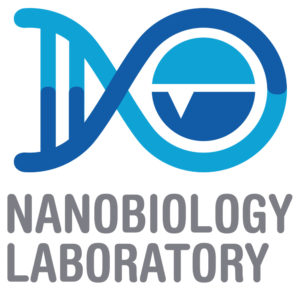National Institute of Molecular Biology and Biotechnology
University of the Philippines, Diliman


PROFILE
Deputy Director for Resources and Facilities, National Institute of Molecular Biology and Biotechnology (2022- Present)
PhD Integrated Life Science, Kyoto University, Japan
MS Integrated Life Science, Kyoto University, Japan
MSc Molecular Biology and Biotechnology, University of the Philippines, Diliman, Philippines
BSc Molecular Biology and Biotechnology, University of the Philippines, Diliman, Philippines
CONTACT
- eiprieto@up.edu.ph
- Rm 208, NIMBB UPD
PUBLICATIONS
LABORATORY
- Nanobiology Laboratory
Nanobiology Laboratory
The Nanobiology Laboratory (NBL) is a multidisciplinary research laboratory which utilizes molecular biology, microbiology, and nanotechnology techniques to answer biological problems. The lab deals with the biophysical analysis of biological systems, using tools such as atomic force microscopy (AFM) to understand fundamental biological interactions at the nanoscale. This knowledge can be translated into developments in biocompatible and bio-mimicking systems, such as in medical devices and bioreactors.
Research Area
Characterization of Archaeal Chromatin Dynamics. The problem of DNA compaction is a common issue across all living organisms, and one major method by which DNA is organized inside the cell while retaining accessibility is through the use of architectural proteins. Eukaryotes are known to rely on histones and bacteria rely on a family of proteins called nucleoid associated proteins. However, there is a lack of understanding of the mechanisms employed by archaea, the third domain of life, in packing their chromosomes into organized structures inside the cell. To address this, nanoscale and biochemical characterization of archaeal nucleoid proteins are being undertaken in the NBL to understand their role in genome organization. Through atomic force microscopy, nucleoprotein interactions can be visualized and quantified to elucidate the DNA binding properties of these key architectural proteins. These observations may aid in constructing models and unraveling key principles behind biological processes such as DNA folding.
Proteomics-based Biomarker Discovery. The NBL is also involved in the Clinical Proteomics for Cancer Initiative (CPCI), a project that aims to discover clinically relevant biomarkers and drug targets for non-small cell lung carcinoma in Filipino patients. The project adopts an integrative approach that combines histopathology, molecular biology, and proteomics to deepen our understanding of lung cancer tumorigenesis and drug resistance. To realize the project’s goals, the laboratory works in close collaboration with chemists, physicians, surgeons and other medical professionals from different institutions.
Selected Publications
Cajili MKM, Prieto EI. Interplay between Alba and Cren7 Regulates Chromatin Compaction in Sulfolobus solfataricus. Biomolecules. 2022 Mar 22;12(4):481. doi: 10.3390/biom12040481. PMID: 35454068; PMCID: PMC9030869.
Prieto EI, Mojares EBA, Cortez JJM, Vasquez MR Jr. Electrospun nanofiber scaffolds for the propagation and analysis of breast cancer stem cells in vitro. Biomed Mater. 2021 Feb 26;16(3):035004. doi: 10.1088/1748-605X/abc3dd. PMID: 33634797.
Maruyama H, Prieto EI, Nambu T, Mashimo C, Kashiwagi K, Okinaga T, Atomi H, Takeyasu K. Different Proteins Mediate Step-Wise Chromosome Architectures in Thermoplasma acidophilum and Pyrobaculum calidifontis. Front Microbiol. 2020 Jun 12;11:1247. doi: 10.3389/fmicb.2020.01247. PMID: 32655523; PMCID: PMC7325993.
Prieto EI, Maeshima K. Dynamic chromatin organization in the cell. Essays Biochem. 2019 Apr 23;63(1):133-145. doi: 10.1042/EBC20180054. PMID: 30967477.